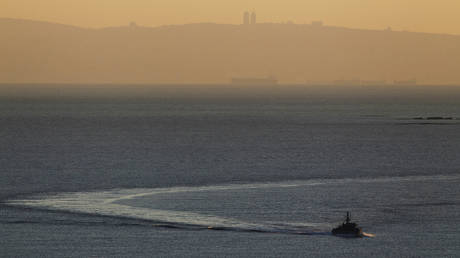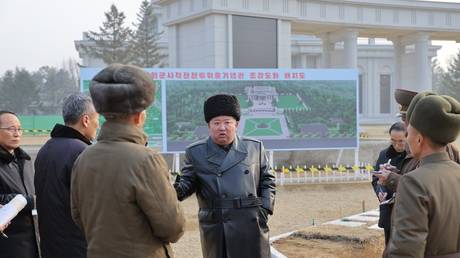
Lebanon’s interim Public Works Minister Michel Najjar has added 1,400 square kilometers to Lebanon’s claim in its maritime border dispute with Israel, adding a new challenge to the already fraught talks between the two nations.
Najjar, who is serving as the minister of public works and transport in the current caretaker government, announced on Monday he’s signed a document expanding Lebanon’s exclusive economic zone from the original submission made to the United Nations.
The increase of around 1,400 square kilometers has to be formally confirmed by the acting prime minister, minister of defense and country’s president before a request to alter the territorial boundaries will be made to the UN. Among the new territory within Beirut’s redrawn boundary is the potentially profitable Karish field, where Greece’s Energean oil and gas company operates.
Speaking at a news conference, Najjar made it clear that he expects “it will be signed” by all three parties, as the three political figures required “are concerned about this.”
Last year, Israel and Lebanon held several rounds of talks on the maritime border dispute, with no solution reached in any of the discussions despite the presence of the UN and US as mediators, with the final round of negotiations postponed due to the lack of compromise on both sides.
The initial dispute was focused on an oil-filled and gas-rich area of 860 square kilometers, which Lebanon claims it lost after Cyprus agreed a deal with Israel and ripped up a prior agreement with Beirut.
In 2007, Lebanon and Cyprus reached a deal to delineate the country’s exclusive economic zone, so the two sides could improve relations and increase their joint work investing in oil resources. However, three years later, Lebanon claimed Cyprus violated this deal by signing an agreement with Israel to delineate the exclusive economic zone between the Middle Eastern countries.
With Lebanon facing a significant economic crisis that has thrown the country into a financial collapse and sparked political instability, there is motivation for the country to secure control of the area, so it can begin commercial oil and gas drilling.
If you like this story, share it with a friend!




